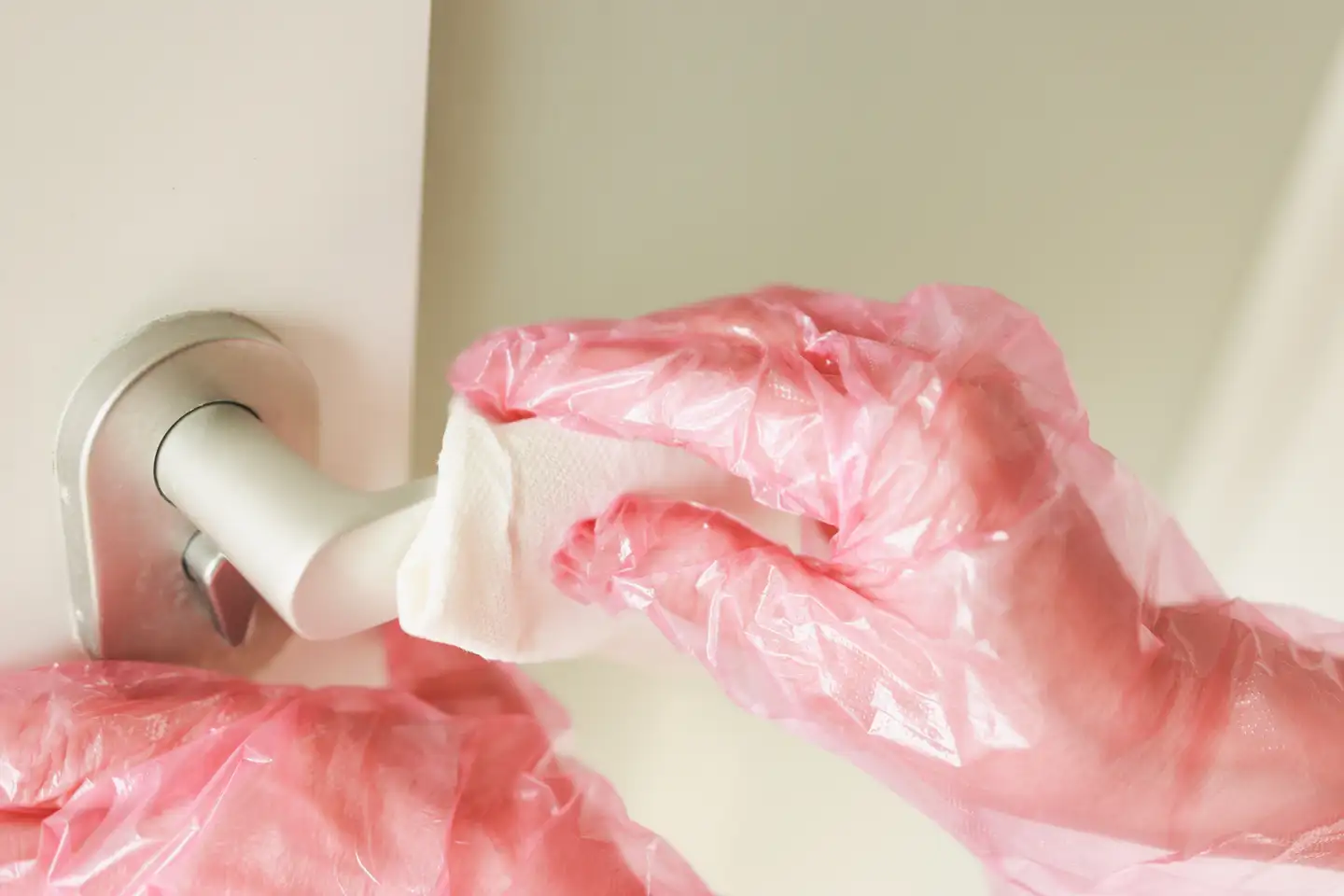Patient L is a first-year graduate student studying at A University in the United States. During her first counseling interview, she revealed to me that she is considering taking a leave of absence because the forced hand washing has seriously disrupted her studies and daily life. L has had excellent academic performance since childhood and came to the United States to study six months ago. Her tendency towards cleanliness began in the semester before the college entrance examination, but it did not generalize during her college years. In her first semester in the United States, her obsessive-compulsive disorder gradually consumed her life: anything that had been used, such as door handles in public places, cardboard boxes for deliveries, dining tables in restaurants, toilets in bathrooms, etc., could trigger her concerns about whether she was sick or not. She takes precautions and avoids everything: she rarely drinks water during the day, tries not to use public restrooms on campus, and only uses the restroom once when she returns to her dormitory; Usually, regardless of the temperature, wear disposable plastic gloves to avoid contact with “dirty” things; Use a large amount of tissues to wipe personal items such as mobile phones, keys, bank cards, etc.
The mental burden brought by obsessive-compulsive disorder is like a huge stone in her heart. She is worried all day long, afraid to socialize with classmates, and becomes increasingly lonely in a foreign land. The excessive focus on “dirty” things consumed a lot of attention and effort, and her studies began to be tight. The thought of her parents paying a large amount of tuition fees for her to study abroad, and if she were to return home due to illness, has already caused her infinite self blame and shame, and she even thought about ending her life.
A local psychiatrist in the United States prescribed medication for her, and her symptoms improved slightly after taking the medication. However, she soon experienced severe side effects, such as daytime sleepiness and difficulty sleeping at night, which left her in a dilemma. After hearing about the possible adverse effects of long-term medication on memory, she was even more unsure what to do.

ERP exposure and response prevention are the mainstream non pharmacological methods for treating obsessive-compulsive disorder in the American psychiatric community. Although this method is safe and mature, I did not bring her to do exposure exercises from the beginning because it poses a great psychological challenge for patients. If she withdraws midway, it is easy for her previous efforts to be in vain. I need to help her make adequate preparations.
It is necessary to help patients learn to relieve stress and anxiety, as almost all cases of sudden deterioration of obsessive-compulsive disorder are times of high stress. The initial onset and recent worsening of symptoms in patients are directly influenced by the stress at that time, accompanied by an increase in psychological anxiety levels. Considering that she will have to face more potential pressures in the future, this part of the work is also necessary to prevent the symptoms from worsening again in the future.
The other aspect of preparation is nutrition and diet – which is somewhat unexpected (this section is also the focus of my case study), as few professionals in this field have discussed the link between neurological health and obsessive-compulsive disorder. I introduce many professional research conclusions in this field to patients, such as the fact that stress-induced mental symptoms are caused by worsening the body’s pre-existing inflammatory levels (many OCD patients already have underlying chronic inflammation, such as rhinitis, pharyngitis, dermatitis, gastroenteritis, hepatitis, etc.), and the cytokines produced by inflammation will spread to the brain’s nervous system, affecting the function of neural structures and circuits; Chronic inflammation in the body is closely related to diet and lifestyle habits; Imbalance in nutrition can interfere with the process of synthesizing neurotransmitters in nerve cells, leading to a decrease in neurotransmitter levels… To completely cure obsessive-compulsive disorder, these root problems of the nervous system must be eradicated, otherwise there is still a chance for obsessive-compulsive disorder to make a comeback.
Patient L’s diet and lifestyle have been very unhealthy for a long time: since she started eating in the cafeteria in college, her dietary structure has been very unreasonable, with more meat and fewer vegetables, a preference for sweets and refined carbohydrates, little exercise, and sleeping after 12 o’clock for many years. Her BMI is already in the overweight range and she has been suffering from constipation.

I obtained her recent physical examination report from the doctor of patient L, which shows that many items have turned on the red light: several important vitamins and minerals essential for nervous system health are low, and blood sugar is high – which has aroused my vigilance, especially considering that the patient’s father also has genetic risks such as diabetes. High blood sugar means insulin resistance. Even if it has not developed into diabetes, it will also affect the inflammation of the brain and the function of the hippocampus. The research evidence in this regard is accurate (refer to the first video link at the end of the article: “So many mental health problems are related to a hormone in the body”). I suggest that patient L should have a more comprehensive physical examination to determine whether she has insulin resistance, the level of body inflammation indicators, and so on.
Based on the results of patient L’s examination report, I developed a two month dietary and nutritional improvement plan for the patient (the patient experienced the benefits of a healthy diet after treatment and has been maintaining this lifestyle). A healthy spirit must be supported by a healthy body, but unfortunately we forget this simple truth when we are too busy every day. Fortunately, the patient is still young and has strong resilience both physically and mentally. This plan includes adding nutritional supplements and adjusting the content of three meals.
The preparation work for relieving stress and maintaining the health of the nervous system is underway. The patient’s obsessive-compulsive symptoms are still present, but they can clearly feel that the level of pain is decreasing, their mental state is also improving, and their confidence in treatment is increasing. These performances make me judge that her brain and nervous system are recovering, and she has the motivation, drive, and perseverance to complete the next step of exposure and reaction prevention challenges. The preparation ahead is like disinfecting a computer and fixing its hardware, exposing and responding to ERP, and other behavioral training aimed at changing the way neural circuits react. The next step is to optimize the computer’s software.
Patient L’s exposure and reaction prevention exercises took a total of 4 weeks (20 hours under the guidance of a therapist, plus approximately 20 hours of self practice) of intensive practice, which was systematic and gradual, exposing the patient to uncomfortable environments. Because she understands that only by gradually calming down the uncomfortable psychological reactions rather than immediately washing her hands or cleaning up, can her brain learn new ways of reacting through practice. This process is also the gradual degradation and disappearance of the previously forced neural circuits (use in, use out, use out).
At the end of the exposure exercise, the patient completely removed her gloves and had no psychological barriers when touching any public items. She was also allowed to have others touch her personal belongings. Of course, the effects of these treatments need to be further consolidated in daily life, but she has already mastered the correct coping methods and started to strengthen her brain health through changes in nutrition and lifestyle, which will keep her further away from the nightmare of obsessive-compulsive disorder.
The patient has not experienced a recurrence in the past few years after treatment, as occasional emotional fluctuations have also been briefly consulted two or three times, which is equivalent to timely stress relief when under pressure. Her studies in the United States have also been going smoothly, and I am delighted to think about her bright future.
